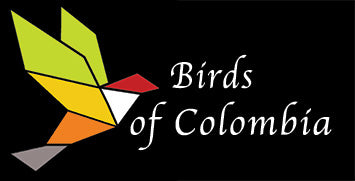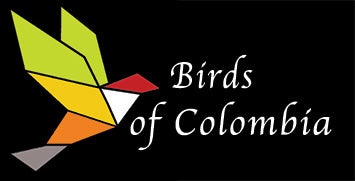Trogón Esmeralda
Black-throated Trogon
Trogon rufus
Song
Black-throated Trogon
Appearance: The Black-throated Trogon is a medium-sized bird with a length of about 25 cm (10 inches). It has a distinctive appearance with a metallic green back, a reddish-brown belly, and a black throat and chest. The male features a blue eye ring, while the female has a yellow eye ring.
Habitat: Black-throated Trogons typically inhabit tropical and subtropical forested regions, including humid lowland forests, foothill forests, and cloud forests. They prefer dense vegetation and are often found in the mid to upper levels of the canopy.
Behavior: Trogons are known for their distinctive call, which consists of a series of low-pitched whistles. They are generally solitary birds and can be seen perched quietly for long periods while scanning for prey. Their diet consists mainly of insects, small fruits, and occasionally small reptiles.
Breeding: Black-throated Trogons typically breed during the rainy season. They excavate nest holes in decaying trees or use natural tree cavities. The female lays a clutch of 2-3 eggs, and both parents take turns incubating the eggs and caring for the young.
Conservation Status: The Black-throated Trogon is considered to have a stable population and is not currently listed as a species of Concern.
FEMALE
Distribution
Western Andes: The Black-throated Trogon can be found in the western slopes of the Andes mountain range in Colombia. This region includes areas such as the departments of Antioquia, Chocó, and Valle del Cauca, where the bird inhabits the cloud forests and dense vegetation along the mountainous terrain.
Northern Andes: In the northern part of Colombia, the Black-throated Trogon is also present in the Andean mountain range. This includes regions such as Norte de Santander, Santander, and Boyacá, where it can be found in montane forests and other suitable habitats.
Amazon Basin: The Black-throated Trogon is known to occur in the Amazon region of Colombia, particularly in the southern part of the country where the Amazon rainforest extends into Colombian territory.
Northwestern: The species may also be found in the northwest of Colombia, in regions like the department of Risaralda and possibly areas bordering Panama. These regions offer tropical forest habitats where the Black-throated Trogon can thrive.
Taxonomy
The Black-throated Trogon (Trogon Rufus)
- Kingdom: Animalia
- Phylum: Chordata
- Class: Aves (Birds)
- Order: Trogoniformes
- Family: Trogonidae
- Genus: Trogon
- Species: Trogon rufus
Vocalization
Call: The call of the Black-throated Trogon is typically a series of low-pitched whistles that are repeated at regular intervals. The call is often described as a soft, melodious sound that can carry through the dense forest canopy. The male and female may have slight variations in their calls.
Advertising Call: The Black-throated Trogon's advertising call is used by males to establish territory and attract females. This call is often repeated several times in rapid succession and can be heard during the breeding season as males defend their territories and communicate with potential mates.
Contact Calls: Trogons also use contact calls to communicate with their partners or offspring while foraging or moving through the forest. These calls are softer and more intimate compared to the advertising calls and help maintain contact between family members.
Alarm Calls: When threatened or disturbed, Black-throated Trogons may emit alarm calls to warn others of potential dangers. These alarm calls can vary in intensity and may alert nearby individuals to potential predators or disturbances in the environment.







